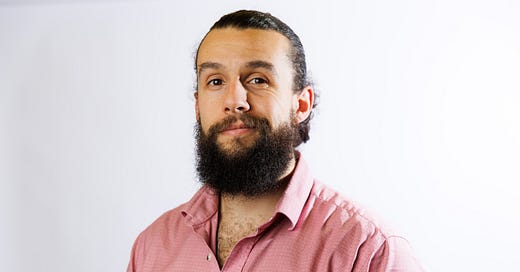While walking my dog this morning I was mulling over the criticism of free speech absolutism: that it is an untenable position because there are no absolute rights, there is always a trade off with other rights, and so restrictions on speech are a necessary part of maintaining a liberal democracy. Basically, it is not possible to be a free speech absolutist while recognising that some restrictions are necessary.
A free speech absolutist, to be consistent, must adopt the position that it ought to be permissible to stand outside of someone’s house while rallying a gang of men to burn it down with its members inside and rape its occupants… to pick an extreme and clear example of incitement to violence.
I consider myself a free speech absolutist and have described myself as such in these pages. My justification for this is twofold:
I think it is desirable for people to be maximally informed about who they share a world with and what they think, especially if the opinion is extreme, crazy and incites hateful actions. This allows an individual to be able to make informed decisions about who to have in their life and who to distance themselves from, as we are free to do if we really do not like what someone thinks and expresses.
A human being is a creature endowed with a capacity for reason that is worked and developed through speak. The ancient Greek word ‘logos’ means, ‘speech’, ‘reason’, and ‘structure’. I think Jordan Peterson is right when he says that speaking is how most people think. To limit speech is to limit people’s ability to think. It doesn’t encourage correct thinking, it stifles any hope of it and undermines what it means to be human.
That being said, I do think that there are some cases, like the one I have given above - and in the more mundane instances of libel - where, respectively, criminal and civil intervention on the part of the state is appropriate. I do not think that this is contradictory, and therefore absurd, to describe myself as a free speech absolutist at the same time.
My reason for reaching this seemingly odd conclusion is that I think there is a difference between an ideal and a claim, between a principle and its application in practice. Allow me to explain this by analogy.
I frequently read criticism of the liberal scientific method about its claims to objective knowledge. There is no neutral standpoint from which to make such an assessment, all claims must necessarily come through some perspective of interpretation and selection of which questions to ask, which data to look at, and which method to use. Therefore, sciences claims to objectivity are false and serve the sole purpose of maintaining dominance as the knowledge producing body that then determines societal outcomes to favour some and disfavour others, blah blah blah.
First, I do think that scientists can be reckless with their use of language without explaining or putting in a lot of effort to educate the public on what it is to think and speak scientifically. Having said that, I think the above criticism misunderstands the aims and ideal of science as a practice for claims. The truth about what is going on in the world around us, at least in the philosophy of science, is frequently acknowledged to be something that escapes our attempts to understand it and moves away from us the closer we look.
As flawed and limited creatures with preferences and biases looking to a world that is outside of use mediated by imperfect senses, we can only approximate what is going on through the scientific method. This method is a continuous process of reassessment and critique and is never finished; forever pursuing and testing universal laws that capture what is objectively possible in the world independently of how it appears in the minds of men.
In short, just because it can be recognised that we can never ultimately and absolutely arrive at objective truth does not mean that it is not worthwhile pursuing it. That through our efforts to seek it, we land closer to it than we would have had we never bothered in the first place. Even though a corollary of this is that we will have been wrong more often than not, it is still worth pursuing.
So it is with free speech absolutism. It is an ideal, not a claim. The principle of free speech absolutism is the ideal, the aim of a free society and ought to sit behind any consideration of restrictions. This does not mean that there can be no restrictions, just that they should be applied exceptionally rarely and only in the most obvious and clear cut of cases where the benefit of doing so wildly outweighs the cost to the individual speaker. Instead of where we are, which is restrictions based on political convenience and the whims of those encouraged to be bitter and resentful. Coupled with the state and institutions enabling these whims because of the additional power it allow them to grant themselves.
Just because it can be recognised that we cannot ultimately permit all forms of speech absolutely does not mean that the principle of free speech absolutism is not worthwhile pursuing.












Share this post